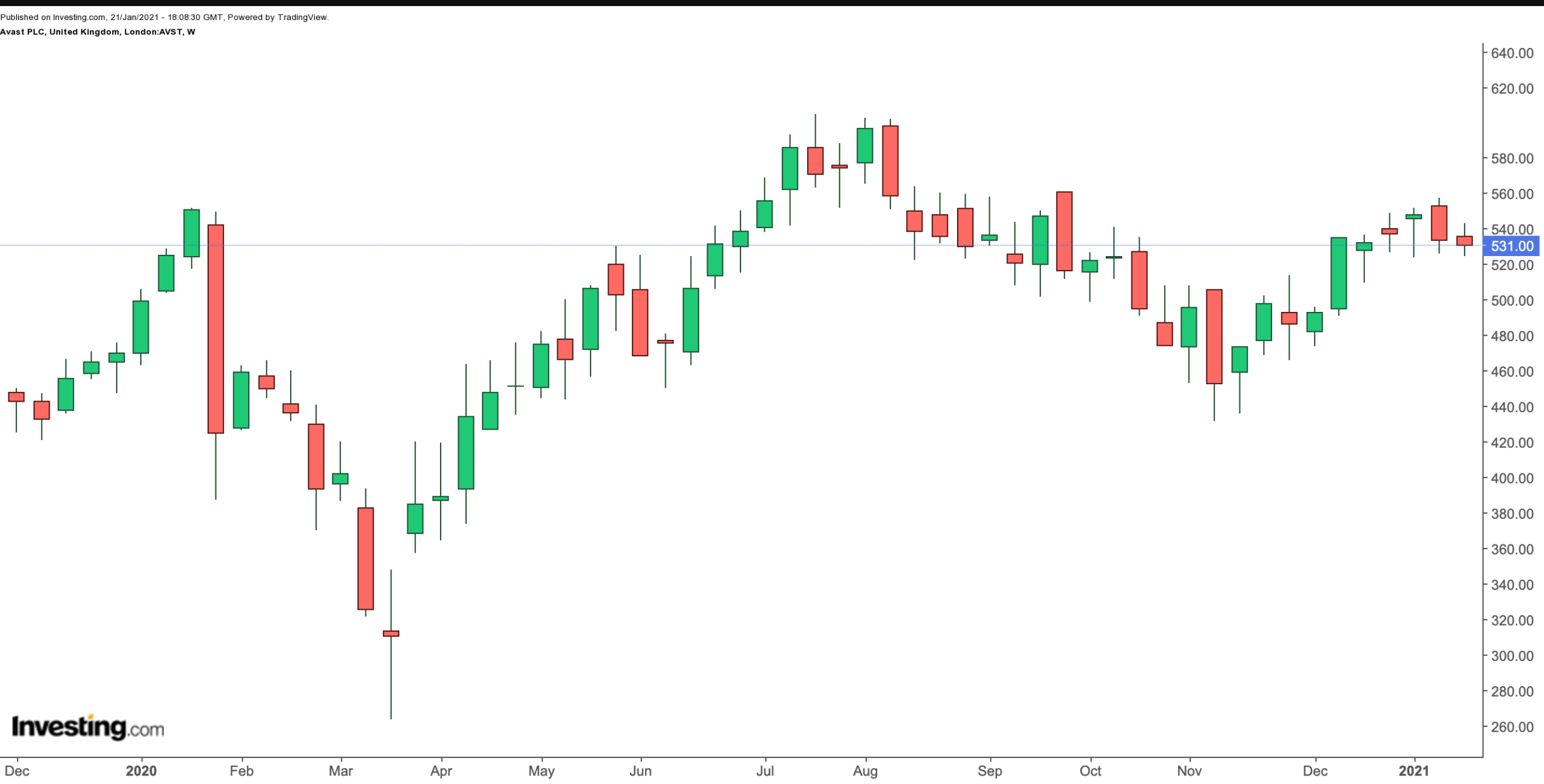Technology shares, which are part of many portfolios, have provided significant returns over the past decade. In the past year, the tech-heavy NASDAQ 100 index returned more than 45%.
Due to the coronavirus pandemic and lockdowns worldwide, digitalization has entered many aspects of our lives much faster than previously imagined.
Increased reliance on technology and the internet has also meant an expanding market for cybersecurity products. Both businesses and individuals are ready to spend more to protect themselves from hackers. While technology advances at rapid speed, so do the methods of scammers and criminals online.
The cybersecurity market "was valued at $149.67 billion in 2019 and is projected to reach $304.91 billion by 2027, growing at a CAGR of 9.4% from 2020 to 2027."
According to recent European metrics:
“Up to 88% of UK companies have suffered breaches in the last 12 months…. That is lower than Germany (92%), France (94%) and Italy (90%).”
US President Joe Biden recently “proposed a $9-billion (£6.6bn) funding injection to shore up the US’s cyber security capabilities, enhancing the work of the country’s Cyber Security and Information Security Agency (CISA), alongside a wider security upgrade across the federal government.”
Many investors understandably think of US-listed shares when technology stocks are mentioned. Yet, many non-US tech companies are also seeing strong revenue and share price growth.
Today's we look at a leading global cybersecurity business, FTSE 100 member Avast (LON:AVST) (OTC:AVASF), a well-known security software provider. So far in 2021, AVST shares are up about 1%. On. Jan. 21, it closed at 531p ($7.3 for US-based stock).

Its stock price supports a dividend yield of 2.1% and the market capitalization stands at £5.46 billion (or $7.49 billion).
By comparison, the FTSE 100 index has increased by 2% year-to-date (YTD). Does Avast deserves readers' attention?
How Recent Earnings Came In
Avast started operations in 1988 in the Czech Republic. Today, it has around 1,700 employees and 20 offices worldwide. It serves over 435 million customers. Its mobile security tools are downloaded by individuals worldwide.
In 2018, it went public and joined the FTSE 250 index in the UK. Last year, the company moved up to the FTSE 100, the country's leading stock index.
According to the half-year report released in mid-August, revenues came at $433.1 million, up 1.5% year-on-year (YoY). Adjusted net income was $169.8 million, an increase of 14.6% YoY.
CEO, Ondrej Vicek said:
"In the half, Avast passed the milestone of 13 million paying customers, up by 640,000. We continue to expand into new markets and extend our reach through new product offerings, such as our innovative privacy solution, BreachGuard…. We expect FY 2020 organic revenue growth to be at the upper end of the previously stated mid-single digit percentage range.”
In late October, Avast provided a Q3 trading update, which showed revenues of $226.0 million, up by 2.6%.
Bottom Line
For those long-term investors who are looking for UK cybersecurity stocks, I believe Avast shares offer long-term growth potential.
AVST stock’s forward P/E and P/S ratios are 30.96 and 9.02, respectively. The valuation metric is on the frothy side. However, given the importance of the sector and the growth it is experiencing, I believe any decline of 5%-7% in the share price would improve the margin of safety. Meanwhile, the company could potentially find itself an acquisition target, too.
Readers who are also interested in exchange-traded funds with a focus on cybersecurity could research the ETFMG Prime Cyber Security ETF (NYSE:HACK), the First Trust NASDAQ Cybersecurity ETF (NASDAQ:CIBR) or iShares Cybersecurity and Tech ETF (NYSE:IHAK).
Some of the companies these funds hold are Akamai Technologies (NASDAQ:AKAM), Check Point Software Technologies (NASDAQ:CHKP), Crowdstrike (NASDAQ:CRWD), Okta (NASDAQ:OKTA), Palo Alto Networks (NYSE:PANW) and Zscaler (NASDAQ:ZS).
